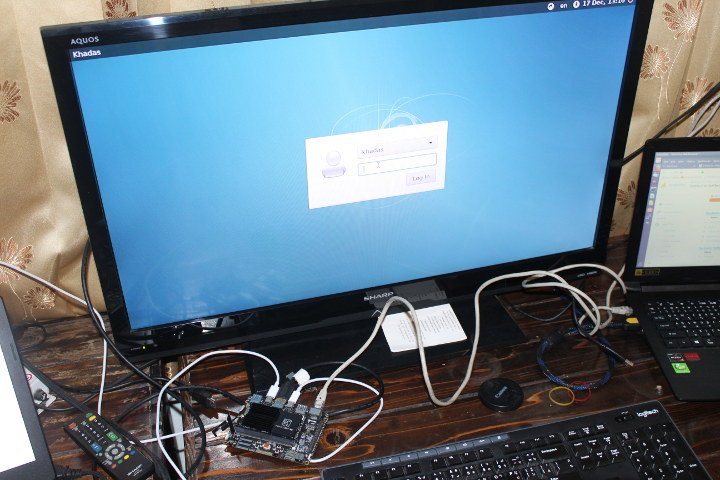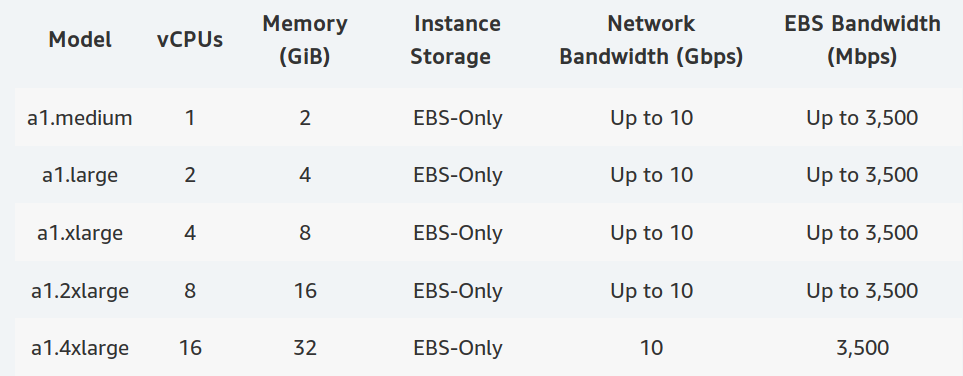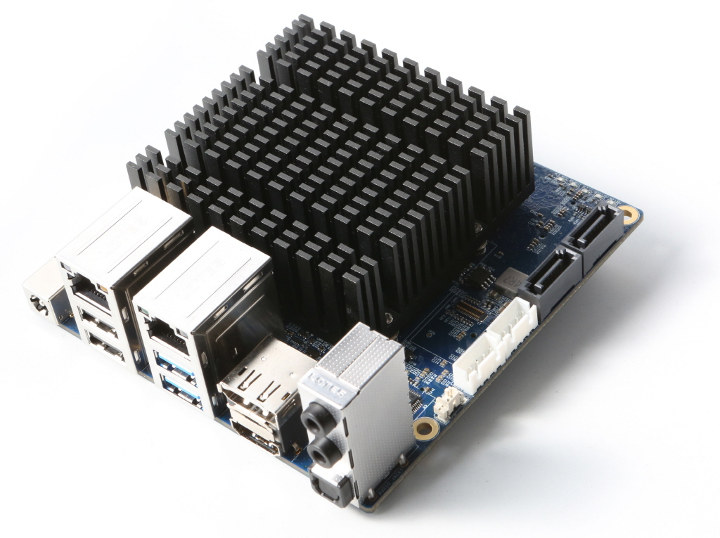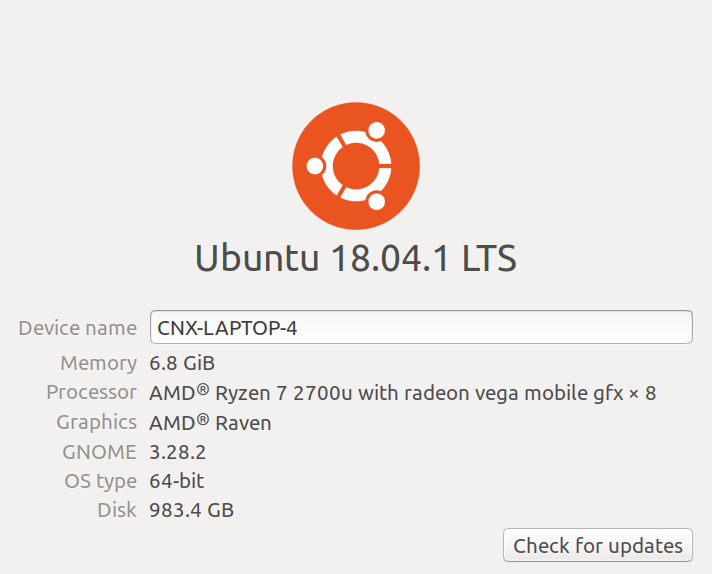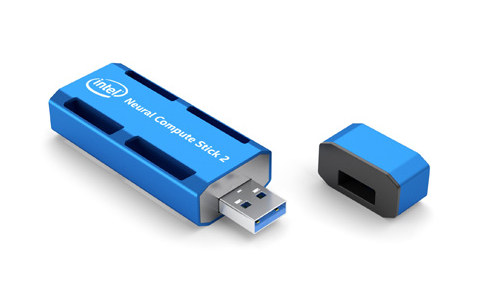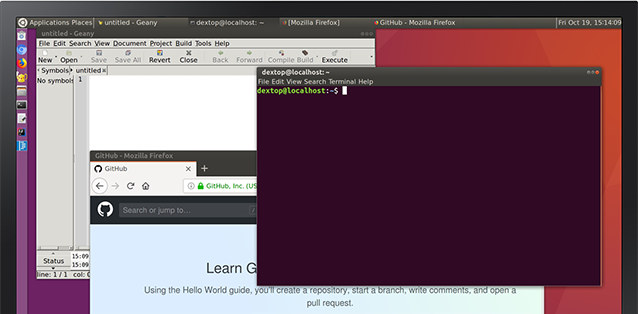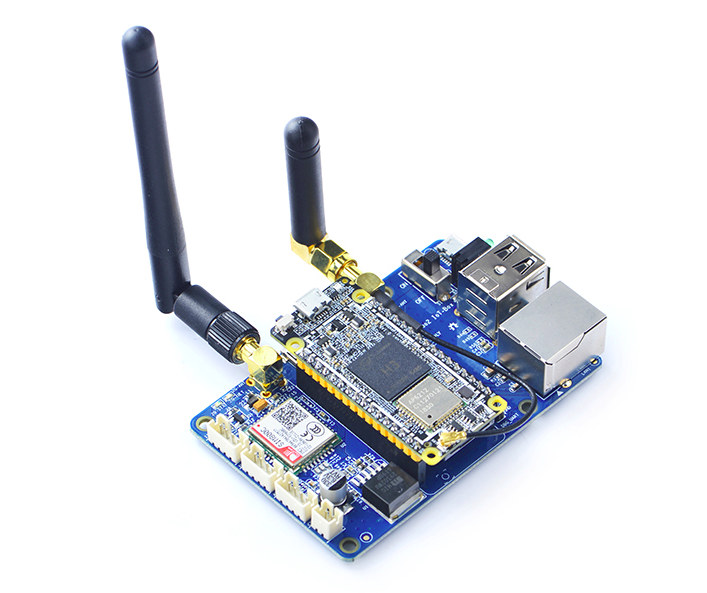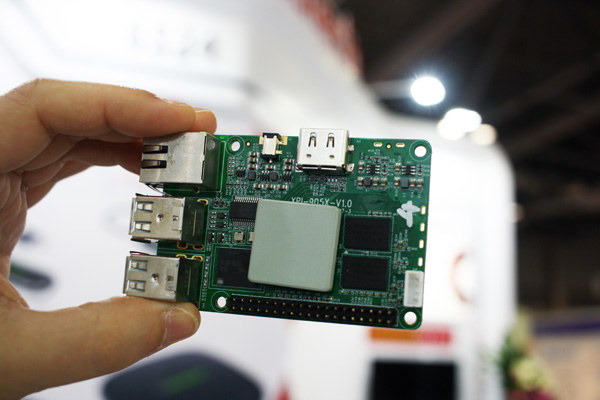I received Khadas Edge Developer Package with Khadas Edge RK3399 module, Khadas Captain carrier board, and several accessories a few weeks ago, and after checking the hardware in the first part of the review, I’ve now taken the time to review software support, specially Ubuntu 18.04 on the board. Khadas Edge / Captain Firmware There are currently four main choices of firmware for Khadas Edge / Khadas Captain: Ubuntu 18.04 OS with LXDE desktop environment @ https://dl.khadas.com/Firmware/Edge/Ubuntu/ Android ROM @ https://dl.khadas.com/Firmware/Edge/Android/ with Android Nougat being a proper release, Android Oreo (available now) a temporary version that will not be supported, and Android P that will be released and supported by Rockchip later on in 2019 Armbian RK3399 for Khadas Edge looks to be work-in-progress right now LibreELEC for playing videos on the platform I decided to focus on Ubuntu 18.04 for this review, and Karl who has his own sample […]
Amazon Launches 64-bit Arm Server “A1” Instances
Amazon has developed AWS Graviton processors optimized for cloud applications and delivering power, performance, and cost optimizations over their Intel counterpart. The processors feature 64-bit Arm Neoverse cores and custom silicon designed by AWS themselves, and can be found today in Amazon EC2 A1 instances. The screenshot above shows Amazon Linux 2, Red Hat Enterprise Linux 7.6, Ubuntu 18.04 Server, and Ubuntu 16.04 Server machine images having options for either 64-bit x86 or 64-bit Arm servers. Amazon Arm server instance are particularly suitable for applications such as web servers, containerized microservices, caching fleets, distributed data stores, as well as development environments. Amazon further explains: A1 instances are built on the AWS Nitro System, a combination of dedicated hardware and lightweight hypervisor, which maximizes resource efficiency for customers while still supporting familiar AWS and Amazon EC2 instance capabilities such as EBS, Networking, and AMIs. Amazon Linux 2, Red Hat Enterpise Linux […]
ODROID-H2 Intel SBC Launched for $111
Hardkernel introduced ODROID-H2 single board computer with an Intel Celeron J4105 processor last month. The first Intel board from the company supports up to 32GB RAM via two SO-DIMM sockets, as well as M.2 NVME SSDs and SATA drives, and exposes various other ports such as HDMI 2.0 and DisplayPort video outputs, dual Gigabit Ethernet, and more. We already knew most details about the board, except for the price and exact launch date. Hardkernel launched the board today for $111 on their online store with shipments scheduled the start on November 27th. Here are ODROID-H2 specifications again with letters in parenthesis referring to the location on the photo below: SoC – Intel Celeron J4105 quad core processor @ up to 2.3 GHz (real frequency) with 12EU Intel UHD Graphics 600 (A) System Memory – Dual-channel Memory DDR4-PC19200 (2400MT/s) supporting up to 32GB RAM in total (B) Storage – M.2 PCIe […]
Ubuntu 18.04 To Get 10 Years Long Term Support
Canonical releases new Ubuntu versions every six months, but most of those are then supported for 9 months only. If you want long term support, you need to install the LTS (Long Term Support) version released every two years such as Ubuntu 16.04 or Ubuntu 18.04 which are supported (for free) for 5 years. If for whatever reasons you cannot or do not want to update after 5 years, the system will not get any security fixes, unless you purchase a Ubuntu Advantage subscription with Extended Security Maintenance, which allows you for example to run a fully supported Ubuntu 12.04 (Server) until April 2020 (8-year support). But this will change for the better, as ZDNet reports that Mark Shuttleworth told the audience at a keynote at the OpenStack Summit in Berlin that Ubuntu 18.04 support will be extended from 5 years to 10 years “In part because of the very […]
Intel Neural Compute Stick 2 with Myriad X VPU Finally Announced
Intel Neural Compute Stick was first introduced in early 2017 as a USB compute that allows AI inference at the edge with low power consumption. The stick is based on Myriad Movidius 2 VPU (Vision Processing Unit), and was found to significantly improve inference performance on Raspberry Pi 3 board over a proprietary GPU accelerated solution. However, a little later last year, Intel also announced Movidius Myriad X VPU with claims of up to 10 times DNN performance over Myriad 2 VPU. But so far, we would only see solutions launched with the latter, and it looks like Intel is finally ready to bring Myriad X VPU to the market with the company announcing Intel Neural Compute Stick 2 at Intel’s artificial intelligence (AI) developer conference in Beijing taking place on November 14 and 15. Intel NCS 2 (Neural Compute Stick 2) specifications: Processor – Intel Movidius Myriad X Vision Processing […]
Linux on DeX (Linux on Samsung Android Phones & Tablets) Enters Private Beta
Samsung unveiled “Linux on Galaxy” a little over a year ago with the aim of allowing developers to running Linux desktop on their high Galaxy smartphones coupled with DeX Station dock, keyboard, mouse and display. It was not quite ready for public consumption yet, so I registered to their mailing list to get more information in due time. This morning, I received an email with the subject “Register for the Linux on DeX beta trail” that reads in part: As an early adopter, you signed up for Linux on Galaxy at the Samsung Developer Conference (SDC) 2017. This service allows you to project a Linux development environment onto a desktop environment, complete with a monitor, keyboard, and mouse. So you can bring your code with you, wherever you go. This year, we have renamed the service Linux on DeX, and are beginning a private beta trial. Please visit our booth […]
Tiny NanoPi Duo2 Board Comes with WiFi, a Camera Interface, an Optional 2G-IoT Dock
NanoPi Duo was launched last year as an ultra-cheap ($8+) Arm Linux board that fits into a breadboard. The board was powered by Allwinner H2+ processor coupled with 256 or 512MB RAM, and the infamous XR819 802.11b/g/n WiFi chip. FriendlyElec has now launched NanoPi Duo2, that’s still breadboard compatible, but with a slightly longer form factor, Allwinner H3 processor, 512 MB RAM, better WiFi thanks to an AP6212 module, and an extra camera interface. As we’ll see further below the company also developed a carrier board for 2G cellular IoT applications. NanoPi Duo2 specifications with highlights in bold showing differences again NanoPi Duo: SoC – Allwinner H3 quad core Cortex A7 processor @ 1.2 GHz with Mali-400MP2 GPU System Memory – 512 MB DDR3 SDRAM Storage – micro SD card slot, footprint for SPI flash Connectivity – 802.11 b/g/n WiFi + Bluetooth 4.0 LE (Ampak AP6212 module) with chip antenna, […]
Geniatech XPI-S905X Board Leverages Raspberry Pi 3 Form Factor
Geniatech is well known in the media player industry for their Amlogic based TV boxes, but in recent years, they’ve also launched some development board from other silicon vendors such as Qualcomm with Developer Board IV and Developer Board 8 powered by respectively Snapdragon 410E and 820E. The company has now launched the XPI family of single board computers that will allow closely follow Raspberry Pi 3 form factor while offering better performance and features. Geniatech will start with XPI-S905X board powered by an Amlogic S905X quad core Cortex A53 processor @ 1.5 GHz with 4K HDR video playback and output capability. Geniatech XPI-S905X board preliminary specifications: SoC – Amlogic S905X quad core ARM Cortex-A53 processor @ up to 1.5 GHz (but they claim 1.6 to 2.0 GHz max…) with penta core ARM Mali-450MP GPU, and Amlogic Video Engine 10 System Memory – 1GB or 2GB (default) DDR3 RAM Storage […]


